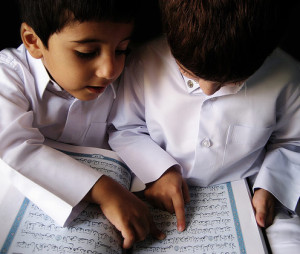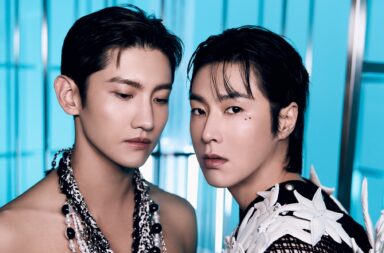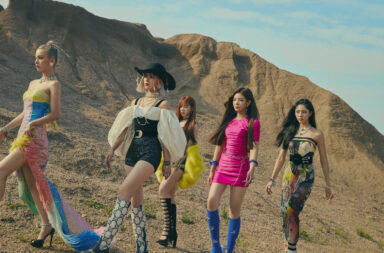After Sidrah’s recent article on K-pop’s clashes with Islam, the Muslim members of the Seoulbeats team came together to discuss their personal experiences as K-pop fans and their reactions to the latest controversies that have arisen in K-pop.
on K-pop’s clashes with Islam, the Muslim members of the Seoulbeats team came together to discuss their personal experiences as K-pop fans and their reactions to the latest controversies that have arisen in K-pop.
Sidrah: I’m just going to start things off by saying that during the research process, the sheer amount of malicious, bigoted and shamelessly racist comments I came across were utterly astounding. Seriously, guys, I thought this was the 21st century? How is it possible that such staggering ignorance and discrimination is still so evident in modern society. It’s sickening…
Irteqa: Sidrah, I want to say that I read your article and thought that you did an excellent job describing Islam and its appearances in K-pop.
Honestly, I am not very surprised. The world is on fire with hateful sentiments towards Islam, especially at this time when there is a host of sensationalized threats of ISIS taking over the West, a couple of bigoted talk show hosts here and there, and endless obstinate generalizations about the bulk of Muslims around the world.
In the 21st century, Islam has a religious dualism that is startlingly apparent. As Muslims, we know the truth and beauty of our religion: how it is peace-loving, compassionate and tolerant. For the rest of the world (at least those whom the media and radicals have brainwashed), Islam is characteristic of some heinous acts and principles I would rather not mention.
It angers me so much that their prejudices may be justifiable. Because of the actions and twisted beliefs of a few whacks, the very name of Islam is being played with and transmogrified into something despicable!
 Hania: Yes, I also have to extend my thanks to Sidrah for your article! It wouldn’t have been easy to throw yourself into the murky depths of the internet to research that, but you did a great job at articulately expressing the issues.
Hania: Yes, I also have to extend my thanks to Sidrah for your article! It wouldn’t have been easy to throw yourself into the murky depths of the internet to research that, but you did a great job at articulately expressing the issues.
As a Muslim K-pop fan, although I have not experienced any other instances of prejudice or disrespect personally, Irteqa’s above point about all the hatred directed at Islam certainly affects many on a day-to-day basis. Being aware of the fact that Islam has continuously been misrepresented means that many Muslims feel like we constantly need to be the antithesis of what people imagine Islam to be. We’re not allowed to wake up on the wrong side of the bed because, if we’re seen walking around in public with a grumpy expression, we’re apparently living proof of the belligerent nature of Muslims. We’re not allowed to get upset or be passionate about something, and we have to constantly apologise for the actions of a few just to prove that we’re not ‘one of them.’
The same goes for when we have to explain to others why using Islamic iconography in pop music is so wrong. At first, many simply don’t understand, and some will even react in hatred.
Unfortunately, K-pop’s got a long-standing tradition of appropriating cultural icons and repeatedly being insensitive to some audiences. Although I was not personally horrified by the examples mentioned in Sidrah’s post, due to their harmless intentions, the industry clearly needs to rethink its approach to other cultures. I feel that in light of all the negative representations of Islam around the world, using a section of beautiful Quranic recitation or stunning architecture of a mosque is at least a positive depiction of the religion. However, at the end of the day, it is still cultural appropriation. Clearly, it’s an issue of ignorance rather than malice.
In their effort to be an international commodity, it’s really up to K-pop companies to educate themselves on other groups, particularly groups who love consuming their music. K-pop is huge in Indonesia, which hosts the largest population of Muslims in the world. Additionally, it also has a strong following in many Middle Eastern countries, such as Yemen and Jordan. In order to hold any standing in these countries, K-pop companies need to tread carefully. The large number of Muslims among Seoulbeats’ staff can even be a representation of just how many Muslims listen to this genre. K-pop in general needs to display greater sensitivity to numerous cultures, seeing as South Korea is a relatively culturally homogenous country. We’ve seen questionable usages of Hindu iconography in videos before, and appropriations of African-American culture, too, so clearly the industry needs to work on this area. For me personally, seeing any sort religious iconography being used tastelessly or flippantly bothers me, even if it’s not directly related to me. Call it sensitive, but seeing the crucifix stamped all over butt-crack-riding short shorts is troublesome to me.
 I can remember my ridiculous fangirl excitement when I watched an Exo KBS Radio Arabic interview, and was over the moon to hear that Chanyeol had studied up on what Ramadan was and to hear the members memorise Arabic phrases. This just goes to show what a huge benefit it is to the industry to show just a bit of inclusion and sensitivity. K-pop is capable of providing a positive media representation of Islam, and I hope to see it go in this direction in the future.
I can remember my ridiculous fangirl excitement when I watched an Exo KBS Radio Arabic interview, and was over the moon to hear that Chanyeol had studied up on what Ramadan was and to hear the members memorise Arabic phrases. This just goes to show what a huge benefit it is to the industry to show just a bit of inclusion and sensitivity. K-pop is capable of providing a positive media representation of Islam, and I hope to see it go in this direction in the future.
Sidrah: It’s upsetting to see how widespread Islamophobia has become. Like you touched upon Irteqa, the world, in particular the Western media, has brandished pitchforks and is relentless in the pursuit of tarnishing the essence of Islam by magnifying the actions of a minority of lunatics that never have and never will represent the majority of the Muslim population. Now we seem to live in a society where it’s become the norm to spew hate against Muslims by echoing a bunch of nonsensical drivel read in the papers without even fully comprehending the entire situation.
Saying that, regarding the incidents in K-pop, what was more annoying than the events themselves was the reaction of spectators and their blatant disregard for Muslims who felt offended by them. Even more annoying was the fact that many Muslims had to justify themselves for even feeling offended because apparently we are not allowed to express our indignation if it feels as if a mockery is being made out of our faith. We are then assaulted with frivolous questions that try to belittle each aspect of our belief system, which only serves to prove Hania’s earlier point about how Muslims constantly need to prove themselves to those who don’t understand.
However, getting back to K-pop, the problem with the use of Islamic or any other religious or cultural themes insofar, is that there is clearly no purposeful attempt at antagonization, glorification or anything at all for that matter. Particularly in the cases mentioned in the article, it seems as though Islamic symbols and sounds were just randomly taken with no understanding of the religious significance behind them and just thrown into the mix. It’s impractical to expect the artists concerned to be aware of every aspect of every culture or religion out there, so of course some ignorance is bound to prevail. But what resulted were products facilitated by straight-up blundering, which makes the whole thing feel sort of lame and that much more irritating because K-pop just keeps on repeating the same mistakes again and again, without even realising it.
For years, arguments have been made about K-pop’s need to become more aware of other groups, particularly due to the fact that its fan-base spreads across the entire world, but these incidents have only elongated the list of flaws it should be working on reducing. Cultural appropriation is still very much a problem, and I think we can only hope that K-pop will learn from these incidents.
Hania, I also totally squealed and freaked out in excitement when I saw the Exo interview. It really is a testament to the joy K-pop can bring when it tries to include different cultures in a positive way.
Hania: The instances of appropriation that we have discussed are clearly as a result of trying to create an ‘exotic’ atmosphere. This can be done without ripping off religious symbols, such as perhaps using a classical instrument or demonstrating some sort of respect or understanding towards the culture. Even though it was a small detail, it also made me happy to hear the members of B.I.G wishing ‘salaam’ to the viewers in their song “Hello,” ignoring the fact that the Arabic was written backwards in the MV. That’s an instance where the intentions were good, and I’d like to see more of that, hopefully executed a little more accurately next time. If there’s a desire in the industry to appear exotic or unique, then it would be great to see some traditional Korean instruments, like we’ve seen in ToppDogg‘s “Arario” and BAP‘s “No Mercy.”
Adri: I agree with with the view that the state of Islamophobia is getting worse. But for more than anything, I do believe it will not create a big division in modern society. The thing is for every Islamophobist out there, there is always an equal number, if not more, of Islamoactivists that view Islam with a less paranoid set of goggles. For example, in the wake of the Sydney hostage situation, Twitter exploded with the #illridewithyou hashtag to advocate embracing tolerance for religious identity when riding on public transportation. It goes to show that tolerance exists in society, while the paranoia of fear is in politics, far away from the truths on the ground.
As for the clash of K-pop and Islam, I think there needs to be a distinction between religious representation and cultural representation in popular culture. It’s absolutely not okay to mix religious sacred lines with any form of art without the intention of spreading the message. Therefore, in this case, I do think CL and Loco are wrong. It is just not right to quote very sacred Islamic recital for your obviously non-religious song.

But in the case of Wassup, I don’t think that there is any need to apologize except for that hideous butt-in-your-face choreography. First, there is no Islamic scripture on the stage background to suggest that it is a mosque. Second, Middle Eastern arts are not exclusive to Islam, as various influences from China, Greece, India and Judaism are all represented in some form in Middle Eastern culture. Third, the notion of mixing sexiness in Middle Eastern culture is not new, as one of the most exported form of Middle Eastern arts is, of course, sexy belly dancing. As I said before, Wassup should have just apologized for bad choreography instead of apologizing for the set background.
Irteqa: As for my position regarding K-pop and Islam, I would conclusively agree with what everyone has expressed. Whether Islamic symbolism and imagery are unintentionally utilized in music videos in an effort to emulate “exoticness,” prayer calls and recitation of the Qur’an are used to add a snazzy vibe to a rap song, or if any aspects of Islam in general are employed as indisputable illustrations of ignorance, the main dilemma is preventing K-pop artists and producers from making these mistakes and disappointing Muslim fans every time they have to apologize.
When individuals take the time to do appropriate and concise research, have a nice discussion over coffee with an affiliate of religion, or simply take into account the diversity extant amongst fans of K-pop, beautiful things come into existence! Hania, I watched the Exo interview, too, and was so elated to see Exo trying their best to engage in trivia related to Islam. It is a great example of sensitivity and respect towards a culture and religion.
K-pop and religion come together in a matter intertwined with understanding, cultural relativism and awareness. It’s tolerable to make mistakes since you can apologize and learn from them, but when you repeatedly make the same mistake over and over again, the wound never heals. I applaud K-pop because it’s something unique and entertaining that exists outside of my culture and country. It’s an opportunity for me to get better acquainted with the world and experience its diverse nuances. But when it comes to inappropriate, albeit inadvertent, representations of my religion, I won’t be lenient.
In this light, I urge K-pop to educate itself about religion and culture and keep in mind the fans that so admire it!
(Images via YG Entertainment and SM Entertainment)


